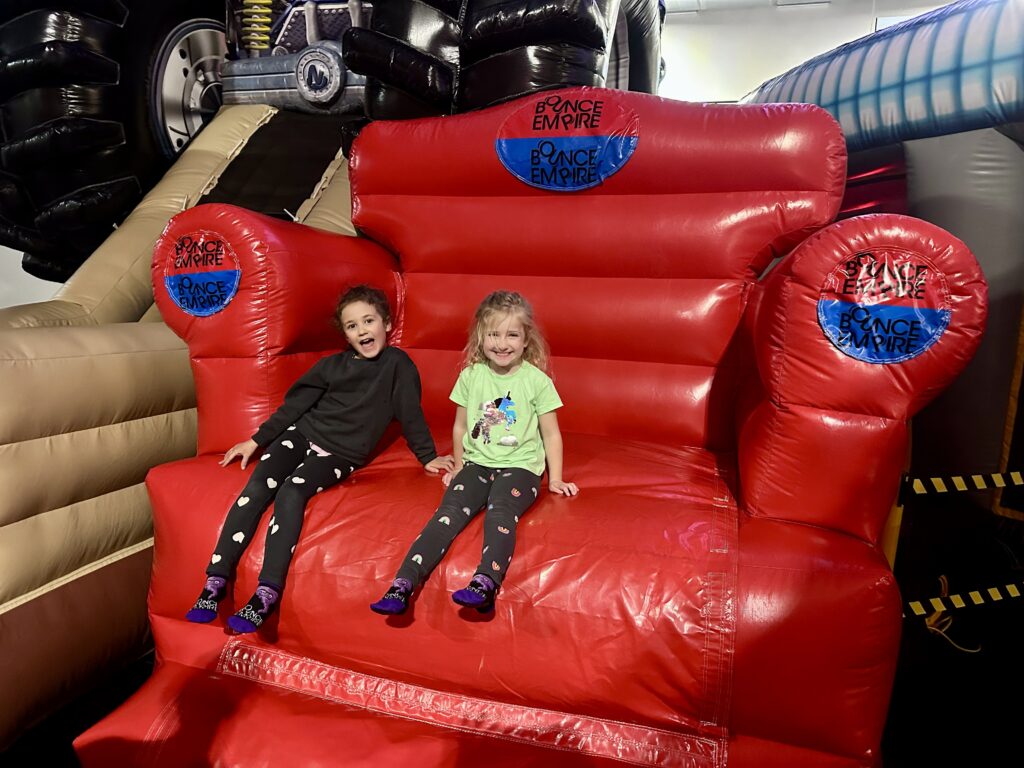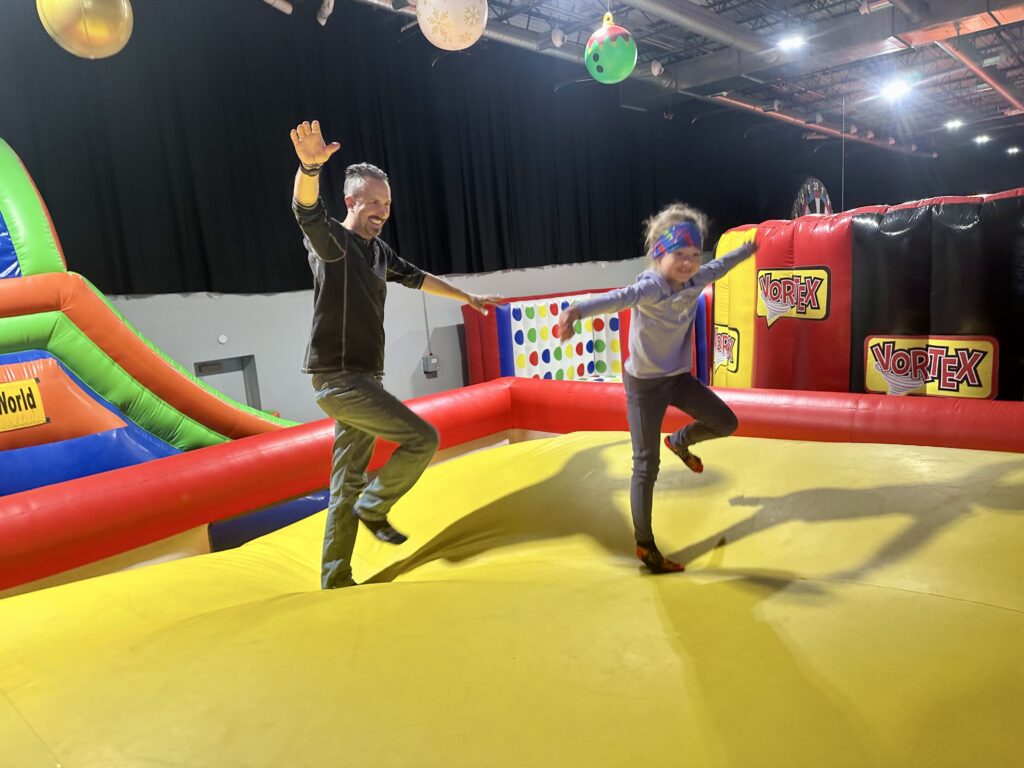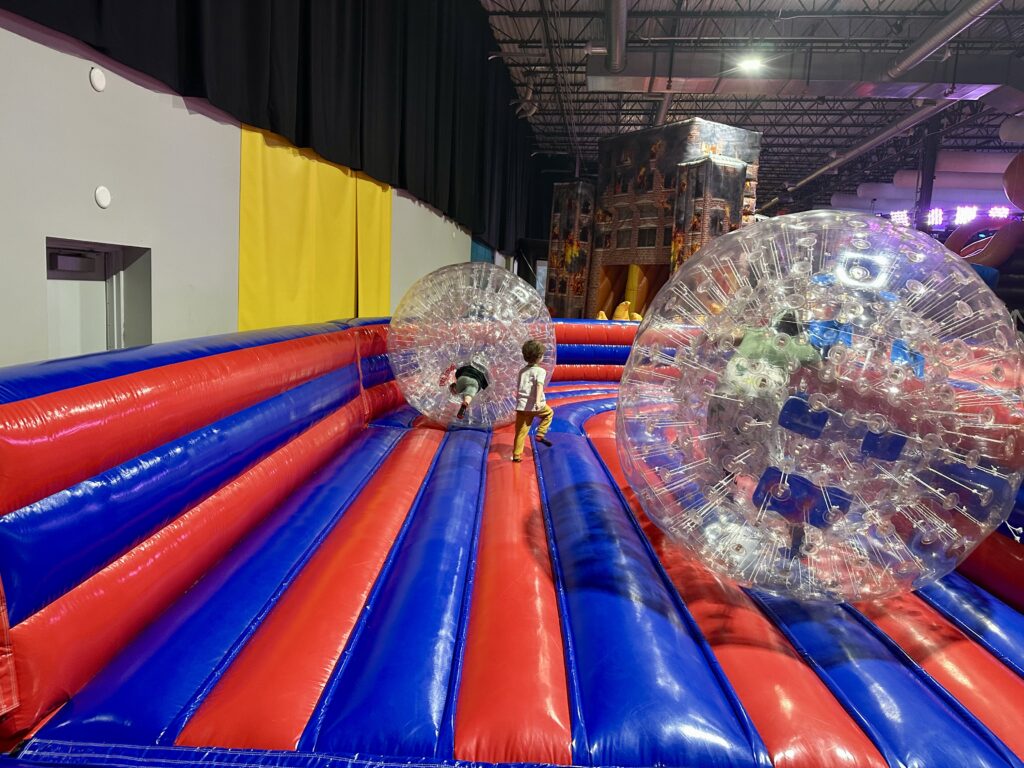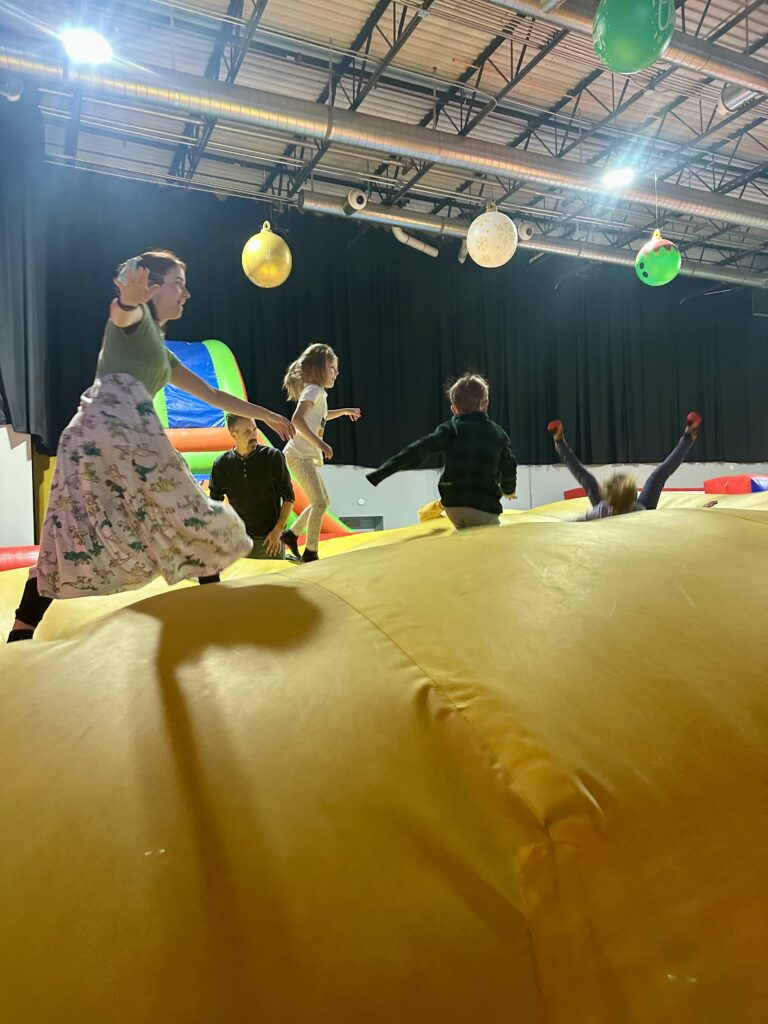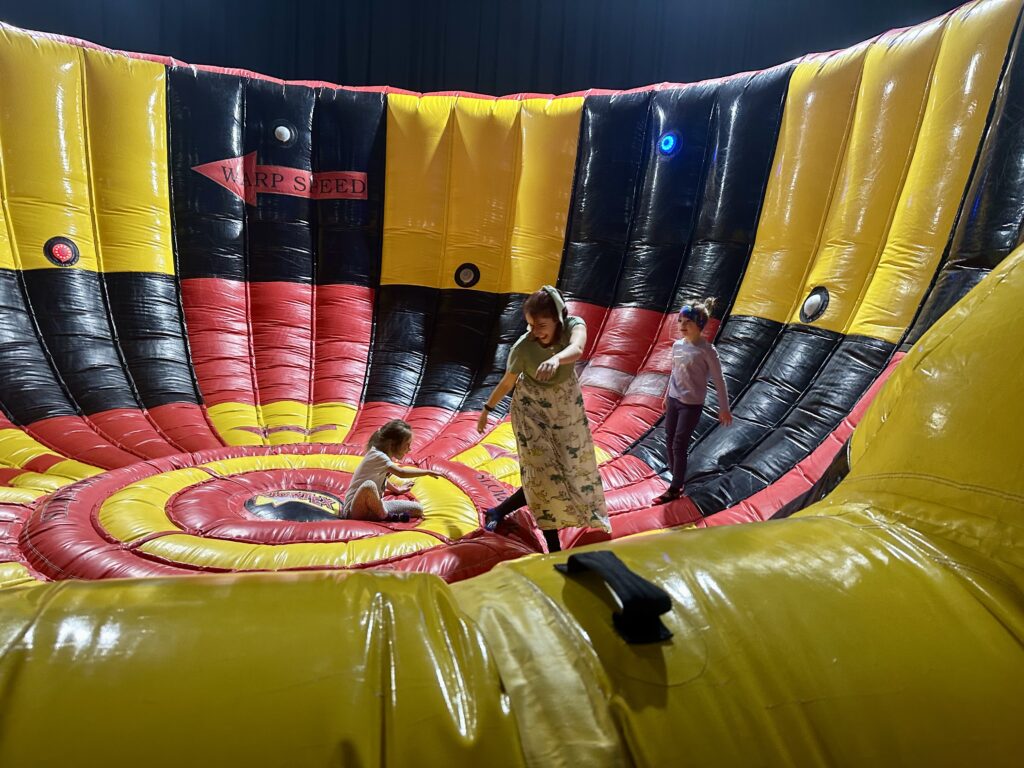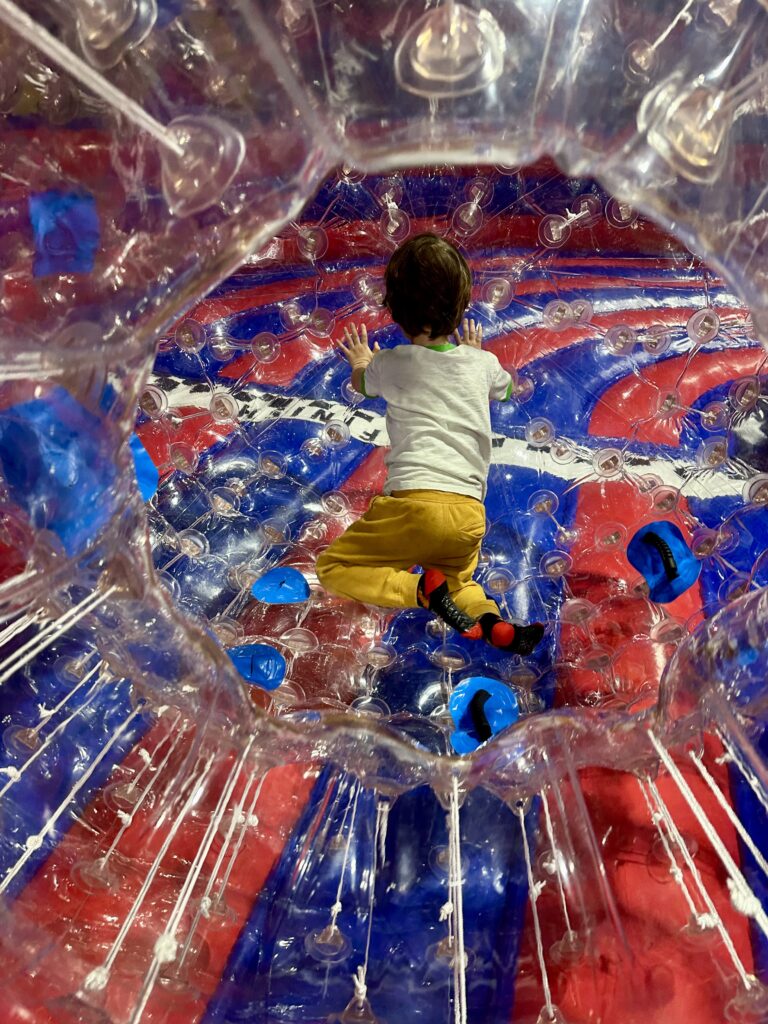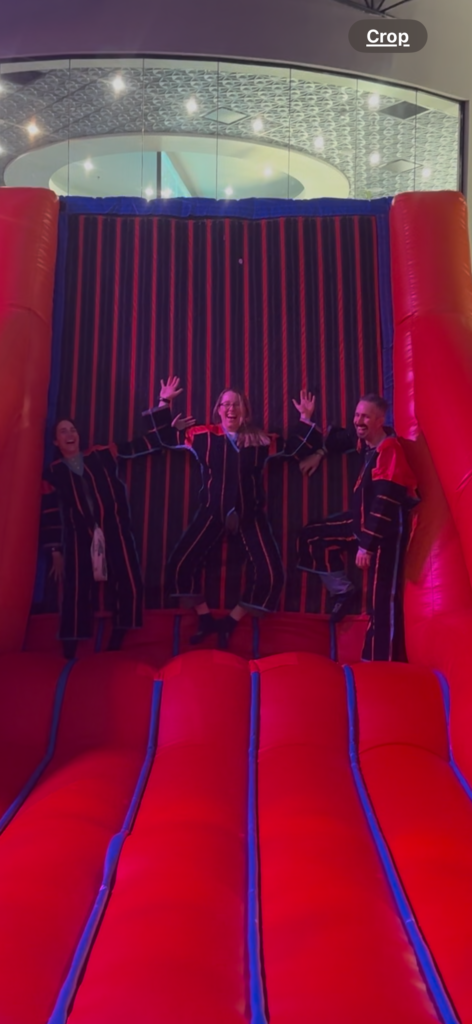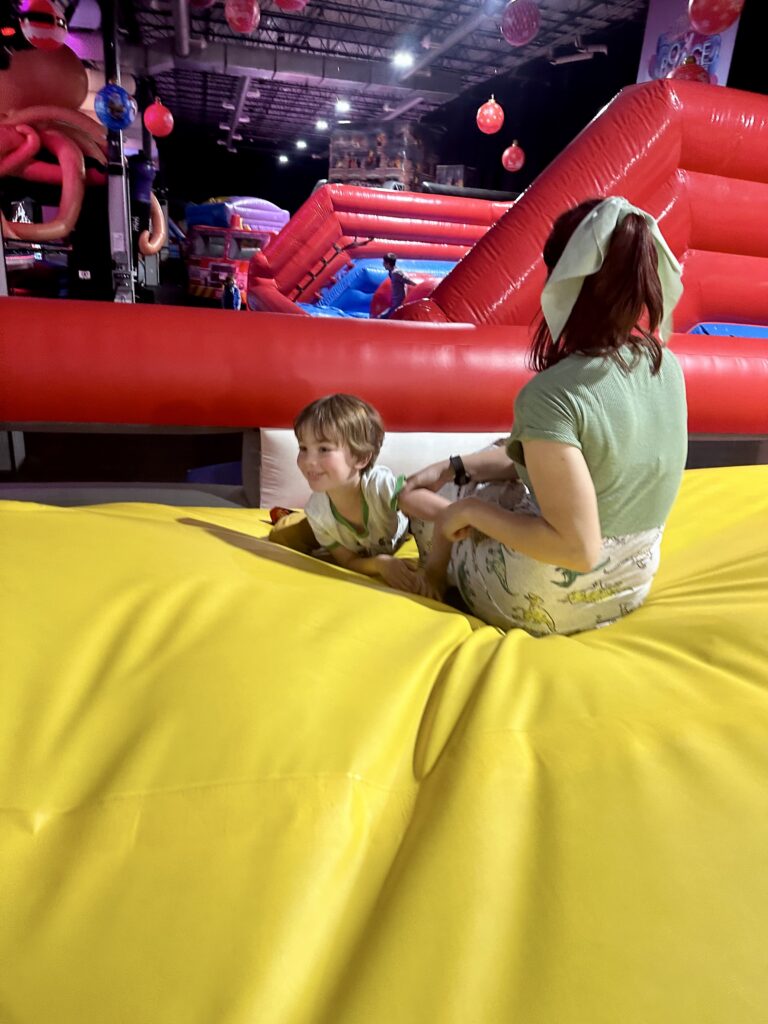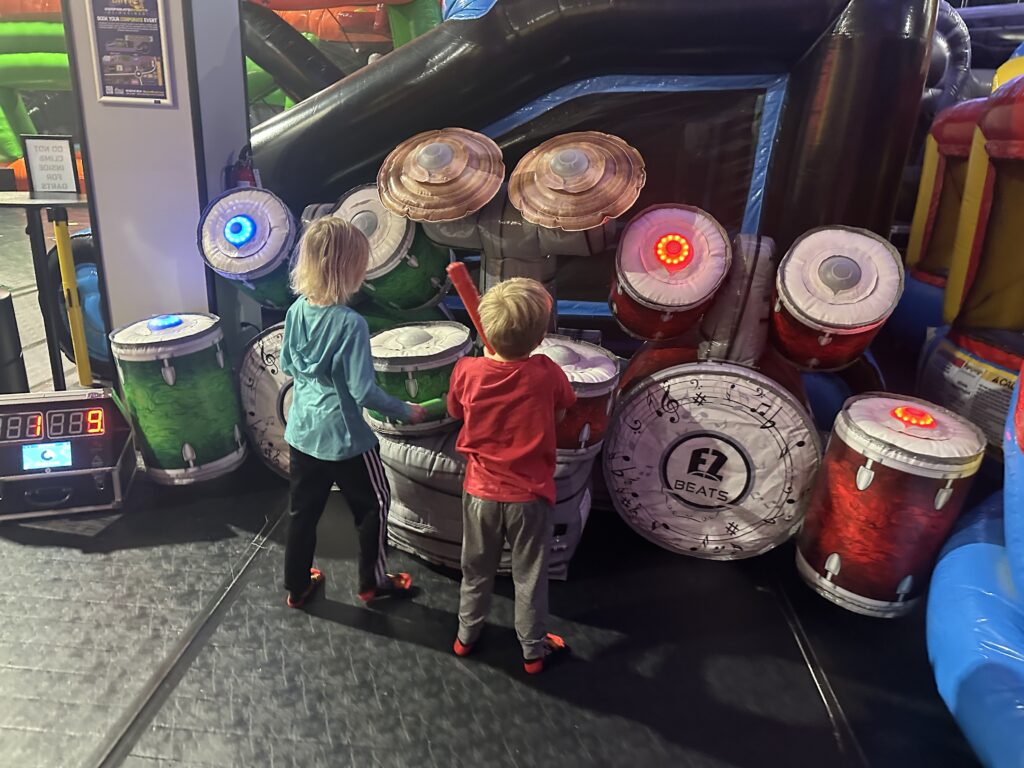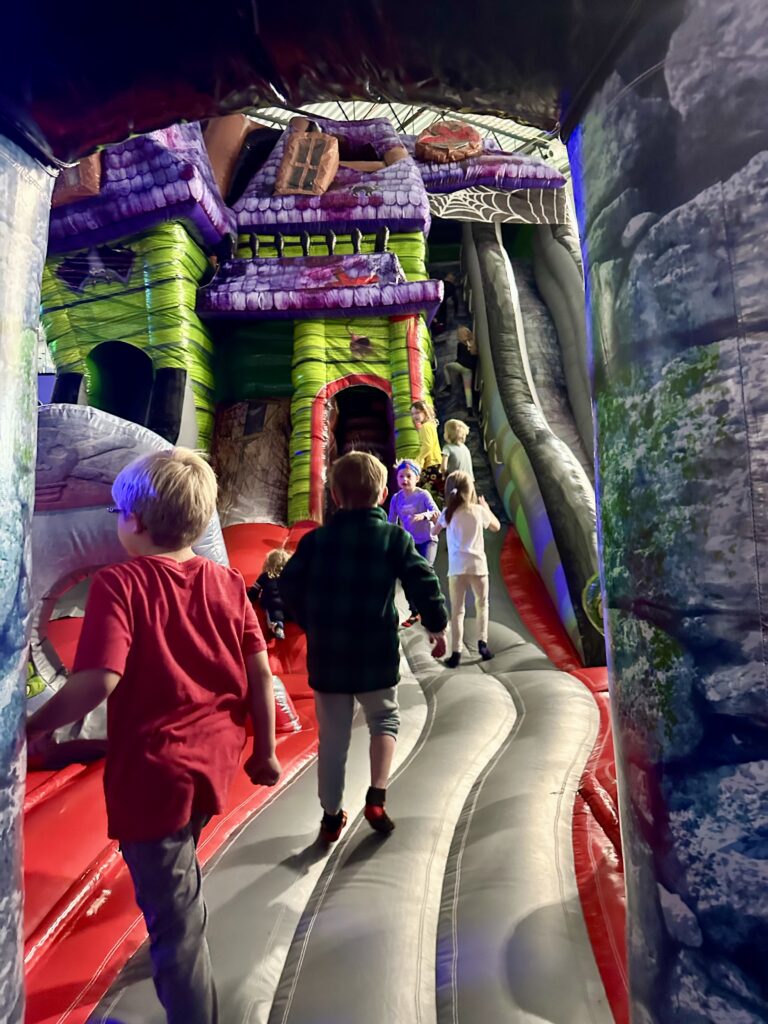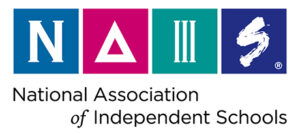Kindergarten Explores the Science of Movement
by Caitlin Spurr, Lead Kindergarten Teacher
Last week, our Kindergarteners took a field trip to Bounce Empire, not only for a day of fun, but also for an exciting, hands-on learning experience. The goal of the trip? To explore how different types of movement impact their bodies and minds, and to better understand how they can prepare themselves for learning in the classroom.
Learning About Our Bodies
For the past month, the Kindergarten class has been diving into a project-based learning (PBL) unit centered around the guiding question: How can we use our sensory systems to support each other’s learning? The field trip to Bounce Empire was a key part of this exploration, focusing on the vestibular and proprioceptive systems—two parts of our body that play a crucial role in balance, movement, and emotional regulation. Through activities like spinning, jumping, and squeezing, students directly experienced how these movements affect their ability to focus and prepare for learning.
As they bounced and climbed, our young scientists began asking important questions:
- Does spinning help me feel more or less ready to learn?
- Does squeezing make me feel calm or energized?
- How can jumping get our bodies ready for the classroom?
These activities encouraged children to reflect on their own sensory preferences and how movement can impact their readiness to focus. Building self-awareness and learning how to regulate their bodies are crucial skills that will benefit them not only in school, but in all areas of life.
Why Field Trips Matter at Friends School
At Friends School, we believe that learning extends far beyond the classroom walls. Our approach to education integrates field trips as an essential part of our project-based learning model. These trips connect academic concepts to real-world experiences, sparking curiosity and providing hands-on opportunities to engage with new ideas.
For our Kindergartners, the visit to Bounce Empire was more than just a chance to play. It was a chance to become sensory scientists, exploring the ways movement can influence their readiness to learn. By blending play with purposeful inquiry, we empower students to take ownership of their learning in meaningful and memorable ways. This is the essence of experiential learning—where learning is anchored in real-life experiences, allowing students to connect theory with practice.
Fun, Friendships, and Focus
Of course, the trip wasn’t all about science. It was also an opportunity to laugh, play, and build friendships. The students practiced teamwork, supported one another, and had fun getting their “wiggles” out before the holiday break. These social and emotional benefits are just as important as the academic ones, contributing to a well-rounded, joyful learning experience.
Bringing It Back to the Classroom
When the students returned to school, they brought with them more than just memories of jumping and climbing. They also discovered strategies to help them feel more focused and prepared to learn. On the bus ride back, the children reflected on how their movement activities had made them feel calm and ready to listen. Several students mentioned that they had slept better that night, indicating the positive impact of physical movement on their overall well-being.
The next day, many children shared their excitement about applying what they had learned about movement and sensory regulation in the classroom. They now have a better understanding of how movement can support their ability to focus, stay calm, and feel energized—insights that will benefit them far beyond the walls of the classroom. Supporting the growth of healthier, happier humans.
The Value of Experiential Learning
This field trip to Bounce Empire is a perfect example of experiential learning—an approach that goes beyond traditional instruction by immersing students in real-world experiences. By integrating movement, science, and play, we gave our students a chance to actively engage in their learning and build essential life skills. At Friends School, we’re committed to creating learning experiences that are meaningful, interactive, and joyful, helping students to develop not just academically, but socially and emotionally as well.
This is why we believe experiential learning is more valuable than any material luxury or school building. It’s an investment in a child’s holistic development, fostering curiosity, self-awareness, and a love of learning that will last a lifetime.

